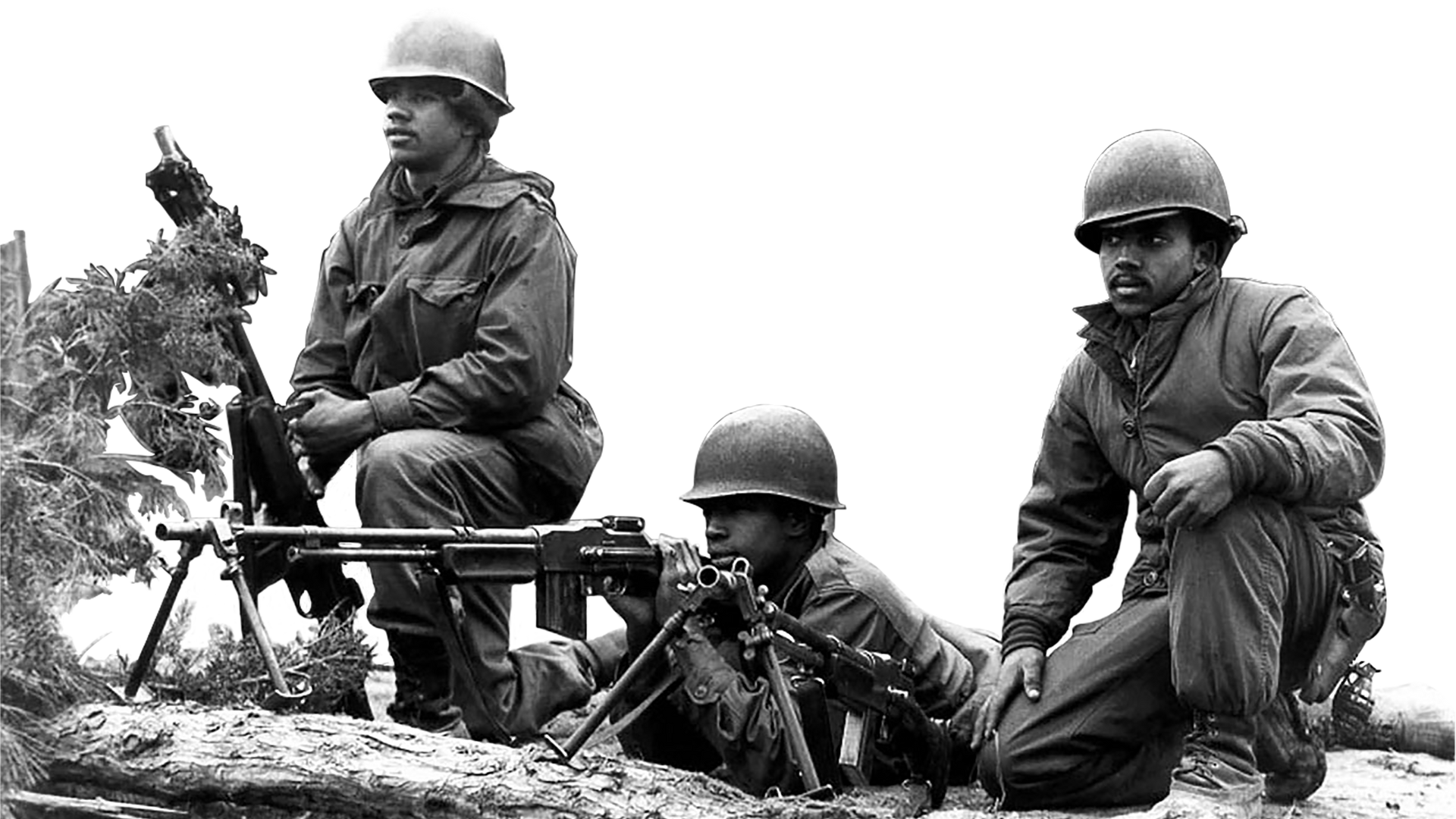
Changing Tides


Korean War
1950—1953
Changing Tides
By the start of the Korean War (1950–1953), two years after President Truman’s order to desegregate the Armed Forces, many units remained segregated. But this new conflict that erupted in Asia would force the U.S. military to truly desegregate.
ShowHide Transcript
Two years after President Truman’s order to desegregate the armed forces, many units remained segregated.
But a new conflict erupted in Asia, one that would force the U.S. military to truly desegregate.
In June 1950, North Korean forces launched an attack on the democratic South Korea.
The following month, North Korean troops invaded Pusan. American troops, including the storied 24th Infantry, fought them to a standstill at a place called Yechon.
The 24th had been formed nearly a hundred years earlier, one of the original 19th Century “Buffalo Soldier” units, and still was predominantly Black.
It was the most decorated unit of the Korean War, with two posthumous Medals of Honor, 24 distinguished service crosses, 185 silver stars, and 1,500 bronze stars.
Early reports of the counter-attack praised the brave performance of the Black troops of the 24th.
Yet some high-ranking white officers later claimed there was no battle at Yechon at all.
Just as in all other wars in American history, Black Americans answered their nation’s call by enlisting and serving with distinction. The Korean War was no different, though their service had more lasting effects.
In 1950, there were 100,000 Black troops across the U.S. Armed Forces. By 1953, more than 600,000 African Americans—a sixfold increase.
Of those, some 5,000 gave their lives in the service of their country—a country which still denied their full civil rights. But their service began to turn the wheels of change. By the end of the Korean War, the U.S. Armed Forces were, finally, truly integrated.
Early reports of the counter-attack praised the brave performance of the Black troops of the 24th. Yet some high-ranking white officers later claimed there was no battle at Yechon at all.